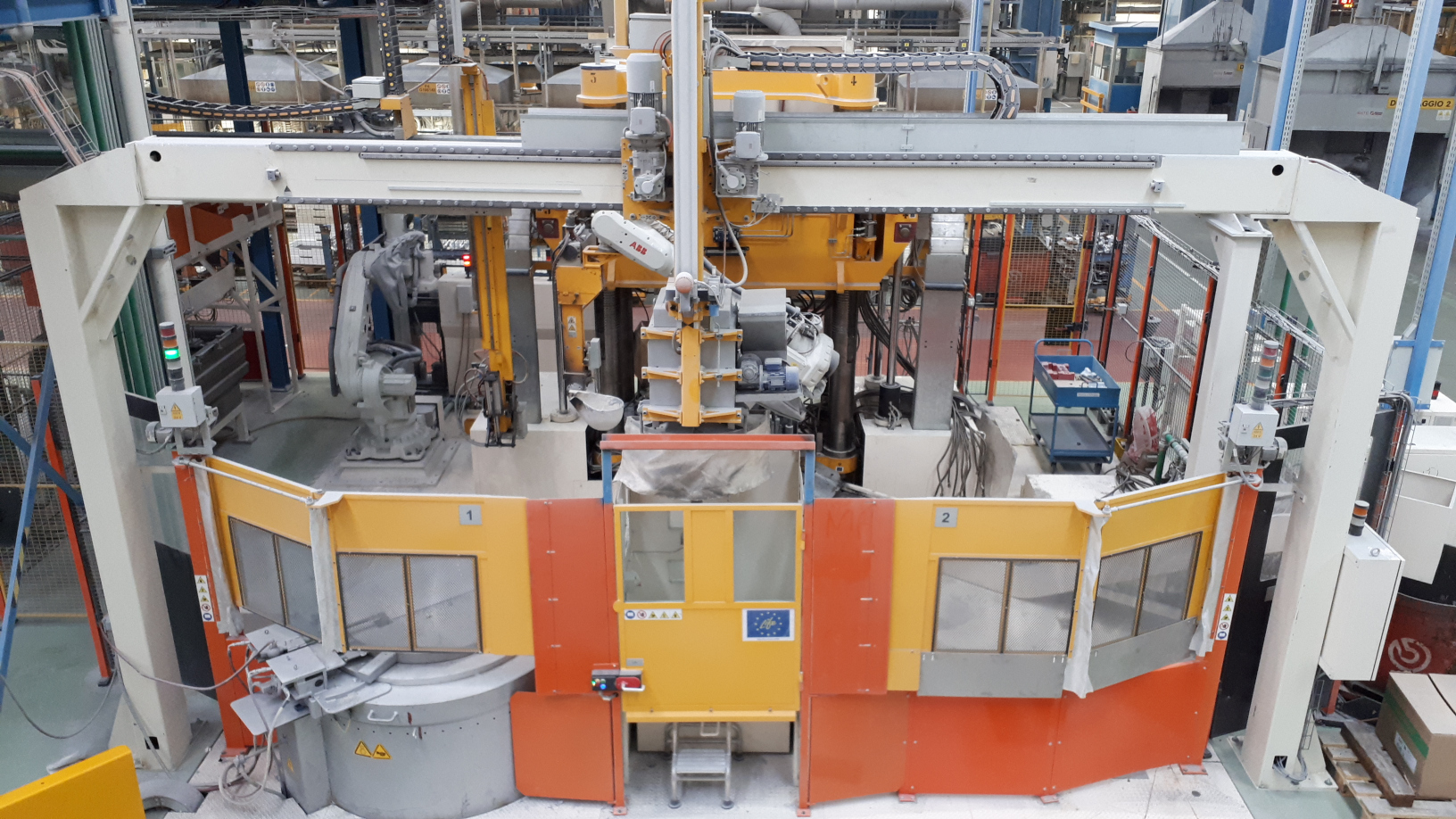
Brembo SpA, in collaboration with Cannon Ergos SpA, has built a pilot plant which uses semi-solid metal alloy processing for the automotive industry. The project was carried out at the Kilometro Rosso Science and Technology Park, and was co-funded by the European LIFE programme.

The results of the research programme, started in July 2016, were revealed at the Kilometro Rosso. This programme involved the construction of a new pilot plant for the large-scale manufacture of lightweight, high-quality components for cars and motorbikes. This is the LIFE CRAL (CRadle-to-grave Approach to Light alloys) project, co-funded by the European LIFE 2014-2020 programme (Environment and climate action programme). The project is coordinated by Brembo SpA, world leader in the design, development and production of braking systems, in collaboration with Cannon Ergos SpA, a company in the Cannon group specialising in the design and production of customised industrial solutions.The Kilometro Rosso Science and Technology Park was the location for the research and testing of this innovative system, which makes use of semi-solid metal alloys, with their distinctive technological properties.
CRAL’s purpose was to develop a pre-production scale process for high-performance automotive components, using recycled aluminium or so-called eco-magnesium (Eco-Mg). The process is certified as having:
The CRAL forms part of the regulatory framework of the CE 1907/2006 REACH (Registration, Evaluation, Authorisation and restriction of CHemicals), the purpose of which is to protect human health and the environment from the effects of chemical compounds, requiring among other things the establishment of a European Agency for controlling chemical emissions.
At the same time, the Regulation promotes the development of projects and production lines aimed at reducing polluting gas emissions, in line with the European LIFE 2014-2020 and Horizon 2020 targets. The total budget for setting up the pilot plant was €3,227,341 of which €1,850,700 was contributed by the European Commission; the remainder being guaranteed by the two project partners.
Through the CRAL project, Brembo and Cannon Ergos have demonstrated the feasibility of a cutting-edge production process able to ensure a series of parallel, interconnected results, having two goals: “technical” and “environmental”.
The technical goal was achieved through the production of automotive components able to ensure optimal performance and behaviour, as good as or better than conventional standard components, using either low-purity, recycled aluminium alloys (with high Fe content), or the new Eco-Mg alloy. This premise was confirmed by specific tests performed on demonstrators, which responded extremely well to repeated validation cycles.
The environmental goal - the primary aim of this new production process - is met by the choice of alloys whose use reduces environmental impact and helps to achieve the targets set by the European Union in terms of protection of the ozone layer and eliminating the water footprint of primary aluminium production, as well as cutting CO2 emissions, as already noted.
Roberto Vavassori, Chief Public Affairs & Institutional Relations Officer Brembo. “The CRAL pilot plant will allow the entire production chain to be redesigned, in order to use this innovative technology to produce, as standard, high-performance components, using materials with low environmental impact. In this context, the CRAL project has huge potential for replication and transferability, benefiting industries outside the scope of the automotive sector. Brembo’s primary aim has been to replicate this process, especially in terms of reducing its own environmental footprint. Many companies operating in the automotive and aerospace sectors have already expressed lively interest in using this technology to produce their own components. Thus, the technology developed in the CRAL project is responding to a real demand from the industry, opening the way to further development possibilities”.

Account Director
Beitrag teilen